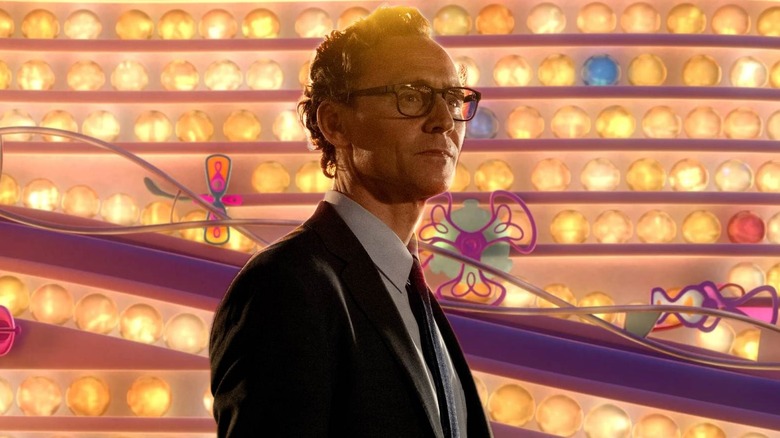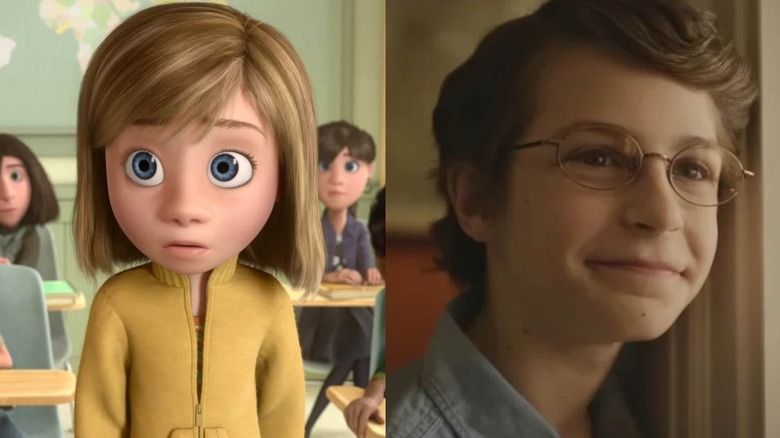Life Of Chuck Is The Stephen King Version Of A Certain Pixar Classic
This post contains spoilers for "The Life Of Chuck."
It's fitting that over the years, some of the best works of director Mike Flanagan have made us cry on levels that could easily be compared to a Pixar movie. Now, his latest film goes so far as to directly recall one of Pixar's best films. "Life of Chuck" (read our review here) is an adaptation of the short story of the same name from author Stephen King, and during the final moments of the world, time is spent looking back on the life of the titular character, Charles Krantz aka Chuck (Tom Hiddleston). It's slowly revealed, however, that this world we're seeing on the brink of collapse isn't real and is contained within the multitude of Chuck's mind during his final days of life.
Every memory, every encounter, every choice and heartache is woven into the story that sees both the end and the earliest memories of Chuck's life, with those that played a part throughout that life in appearing in different chapters of the story. With this revelation, one big takeaway is that Flanagan's heartfelt story of a life well-lived and the memories that make us who we are is the very same subject and issues tackled by the Oscar-winning, highly emotional, and easily one of the best Pixar movies ever, "Inside Out." What's interesting to consider is just which one of them does it better, which is pretty hard to assess given that one of them has Tom Hiddleston and the other houses one of the most emotional death scenes ever.
Things get emotional for The Life of Chuck and Inside Out
The trick with "The Life of Chuck" is that it's never initially established where we are in the story until just after the halfway mark. Initially, it's purely a matter of strange timing that the world is slowly shutting down. But after stars have gone out, cars have stopped working, and broken hearts are mended again, it's revealed that these lives are all part of Chuck's memories and, fragmented or not, finally come to rest as the lights begin to dim.
"Inside Out," while in a considerably more positive environment of a growing mind, as opposed to one that's coming to an end, still hangs on to concepts and ideas that "The Life of Chuck" plays around with. The emotions of Riley (Kaitlyn Dias) are living lives of their own and having to deal with problems that come with them. But while Chuck's memories might be fragmented in his recollection of them, Riley's, with her mind as fresh as it is, are collected and stored away and aren't mistaken for imagined or reality, but they do impact the choices she makes. These characters know who they are and the surroundings they're in, as opposed to the teachers, nurses, and old friends that often blend into one. In a way, "The Life of Chuck" and "Inside Out's" portrayal of consciousness aren't better or worse; they're simply told from a different point of view.

